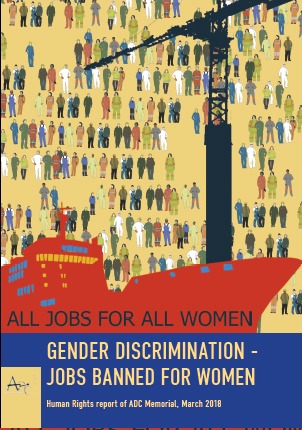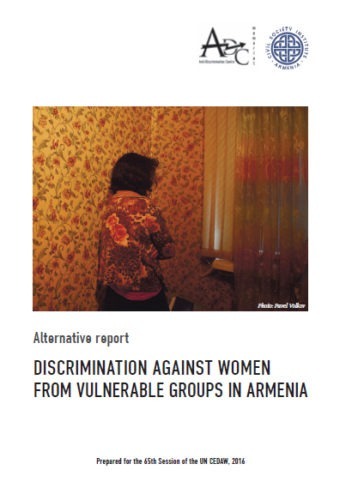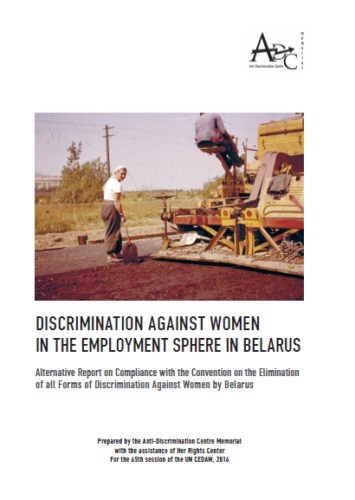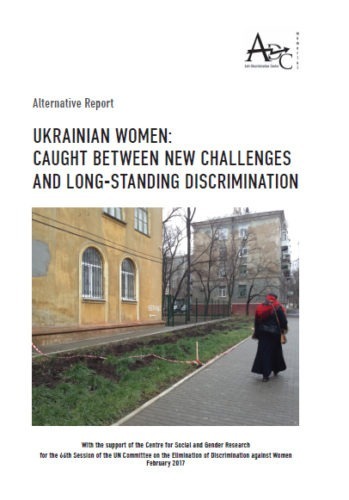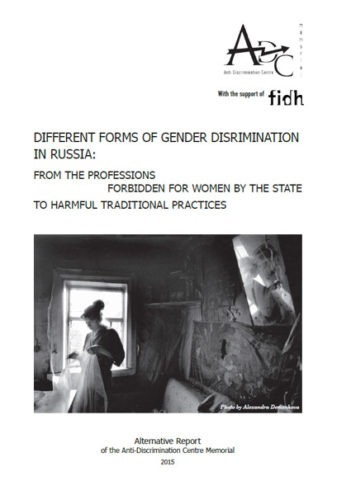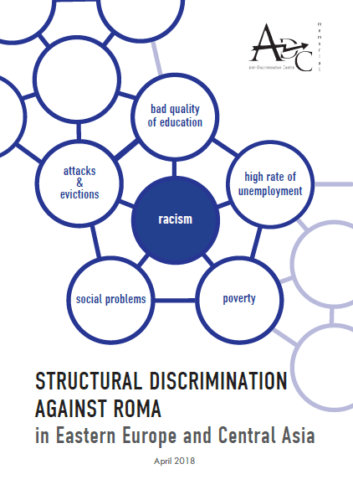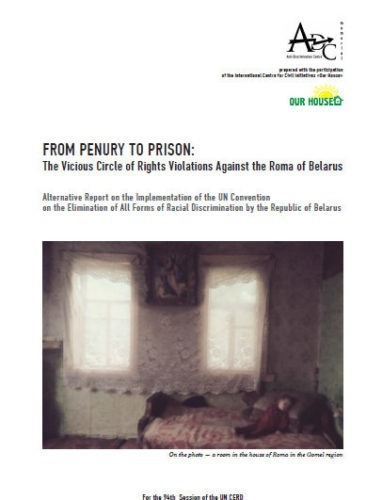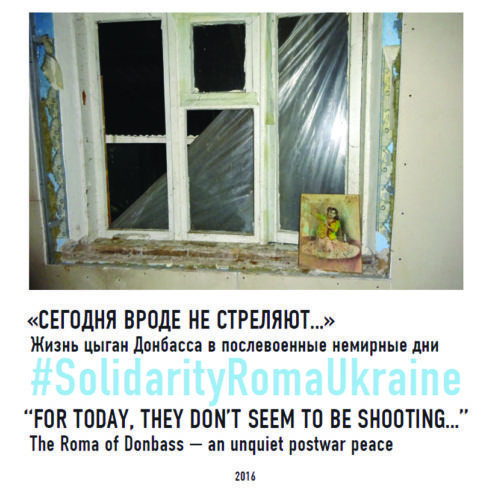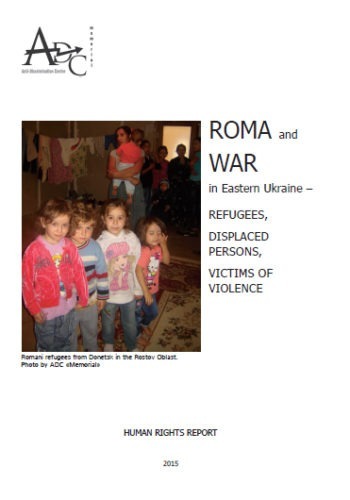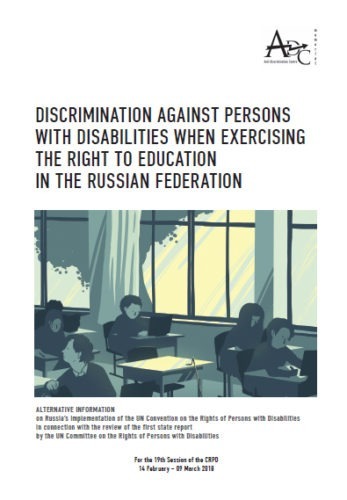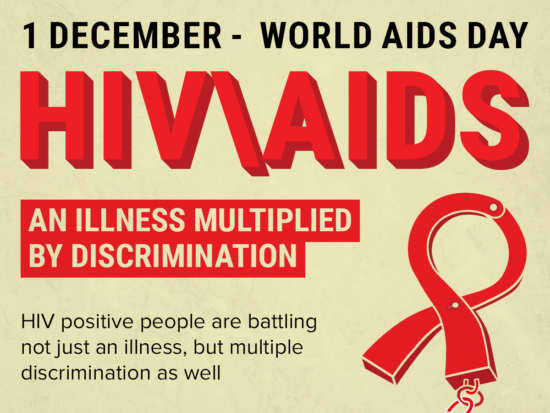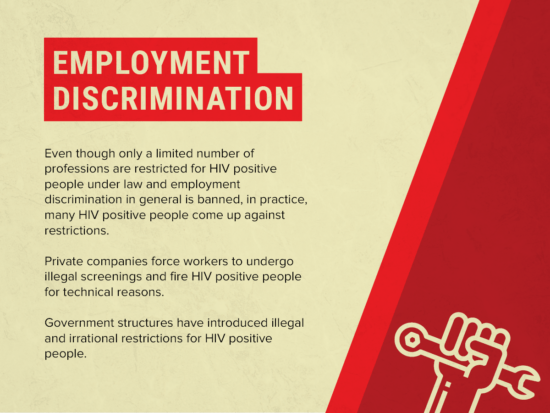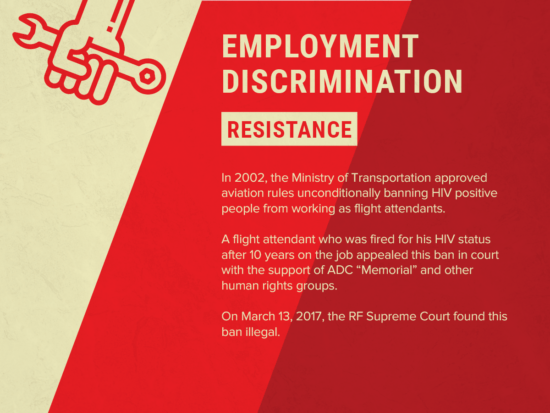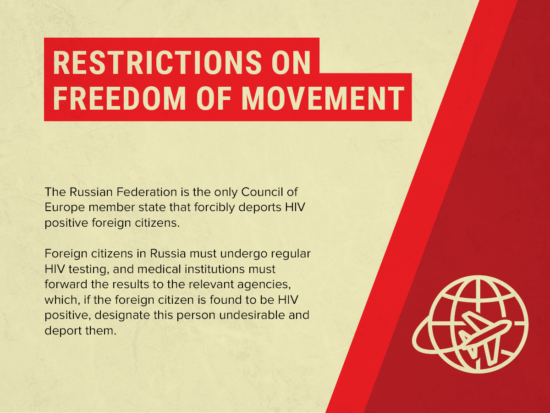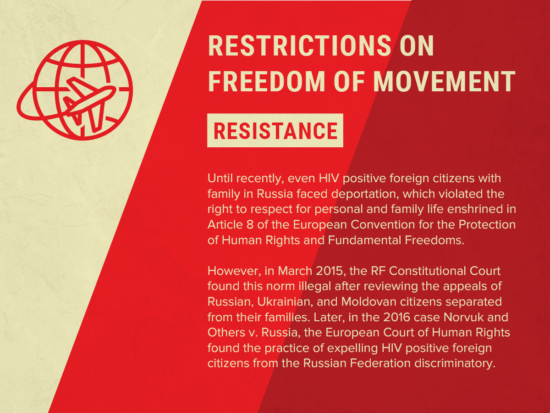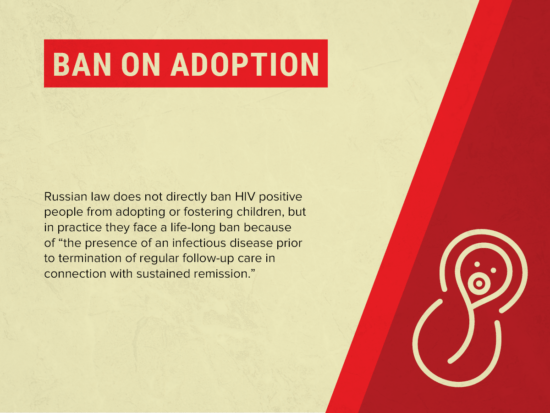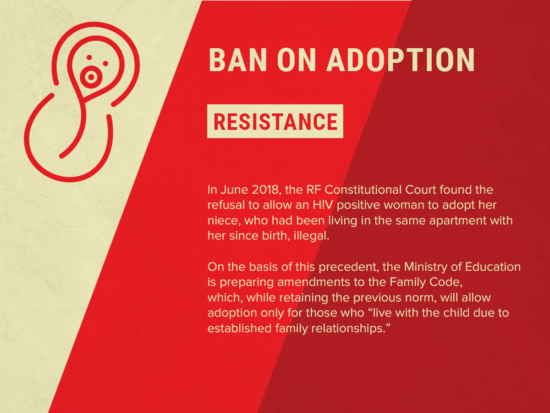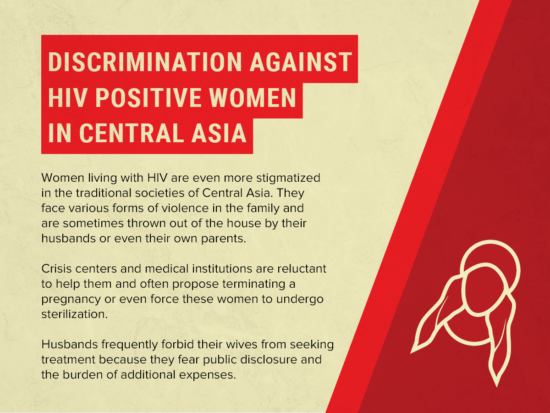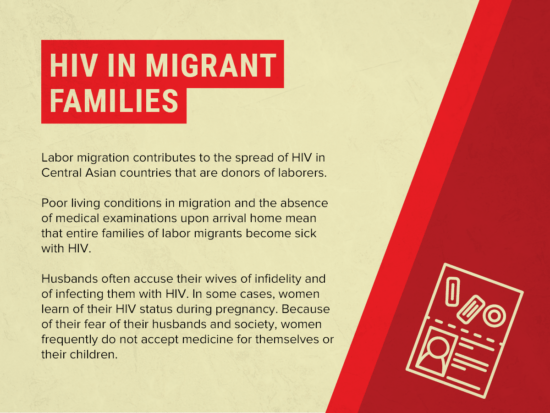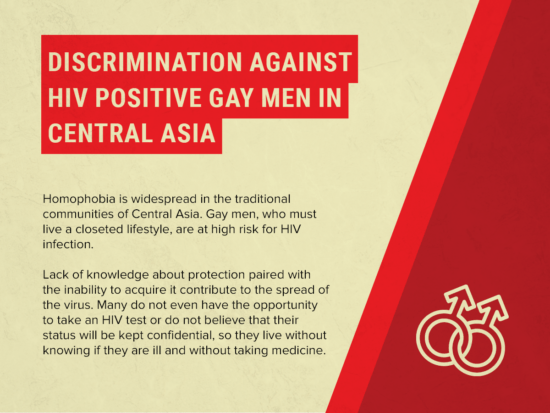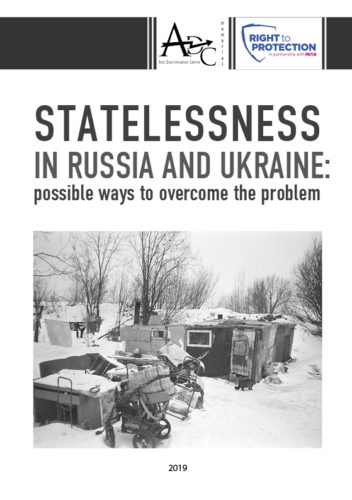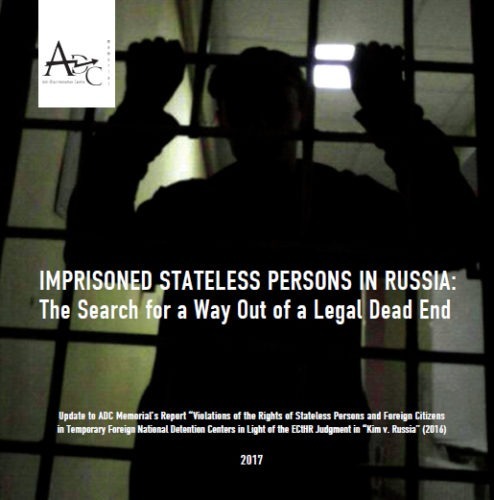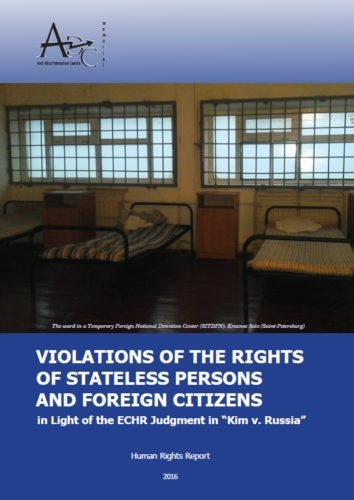
Fighting the lists of professions banned for women: the #AllJobs4AllWomen campaign
The existence of legally-enshrined professional bans for women is a pressing problem throughout the entire region. ADC Memorial has spent many years fighting for gender equality in the workplace, and it launched the regional campaign #AllJobs4All Women in 2017. This campaign has resulted in the partial or full repeal of this discriminatory practice:
Ukraine repealed its list in December 2017, nine months after the campaign launched;
Moldova made amendments to its Labor Code, which entered into force on August 25, 2017, six months after the campaign launched;
Uzbekistan repealed its list in March 2019, nine months after the campaign launched, and the list lost effect on May 1, 2019;
Russia shortened its list in 2019 and opened over 100 professions for women on January 1, 2021;
Kyrgyzstan, Kazakhstan, and Belarus are all discussing repealing their lists
n 2012 ADC Memorial received a request for assistance from Svetlana Medvedeva, who had been denied a position as helmsperson-motorist in Samara Oblast. ADC Memorial supported Svetlana in courts, and in 2013 a complaint was submitted to the UN Committee on the Elimination of Discrimination Against Women, which issued a decision in her case in 2016. The Committee found that the practice of professional bans is discriminatory and violates the Convention on the Elimination of Discrimination Against Women. In 2017 Russia’s Supreme Court granted Medvedeva’s cassation appeal and sent her case back to the lower instance court for reconsideration. A final decision in favor of Medvedeva was adopted by the Samara Oblast Court in January 2018.
n 2017 ADC Memorial launched the #AllJobs4AllWomen campaign with the goal of ending the practice of legally-enshrined professional bans for women in former Soviet countries. In 2018 the European Parliament held hearings on the banned professions organized by ADC Memorial with the support of Claire Moody, a European Parliament deputy and member of the Foreign Affairs and Women’s Rights and Gender Equality committees. Svitlana Voytsekhovska, a member of Ukraine’s Verkhovna Rada, and Svetlana Medvedeva also took part in the hearings.In 2017 and 2019, ADC Memorial held side events on the cancellation of professional bans for women at the OSCE.
The campaign involved the preparation of numerous informational materials, interviews with women who faced discrimination, and an analytical report on banned professions in the region.
ADC Memorial has repeatedly raised the issue of banned professions in alternative reports on a number of countries for UN CERD: Russia (2015, 2020), Belarus (2016), Armenia (2016), Ukraine (2017), Tajikistan (2018), Moldova (2020), Kyrgyzstan (2019), Kazakhstan (2019); the UN Committee on Economic, Social, and Cultural Rights in relation to Moldova (2017), Russia (2017), Kazakhstan (2018), and Azerbaijan (2019); and in reports for the European Union and EU human rights dialogues with countries in the region. International organizations have issued corresponding recommendations to governments and called for an end to this discriminatory practice.
Although ADC Memorial focuses on the women’s right to work, the other aspects of gender equality are also covered, in particular the problem of transphobia and gender violence.

The #StopLGBTpersecution campaign and protecting LGBTI+ rights
ADC Memorial has documented violations of LGBTI+ rights in the region, published human rights reports on this problem, and provided information to international agencies. In 2017 ADC Memorial launched a campaign of solidarity with LGBTI+ people being persecuted in Chechnya and regions of Ukraine in the military conflict zone and under Russia’s de-facto control:
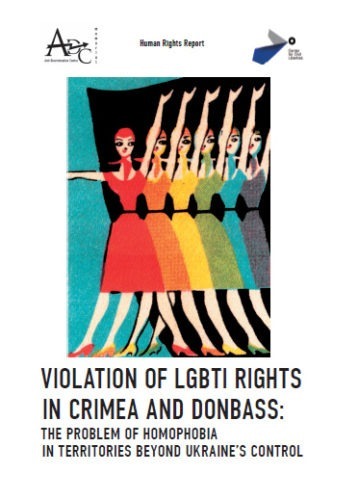
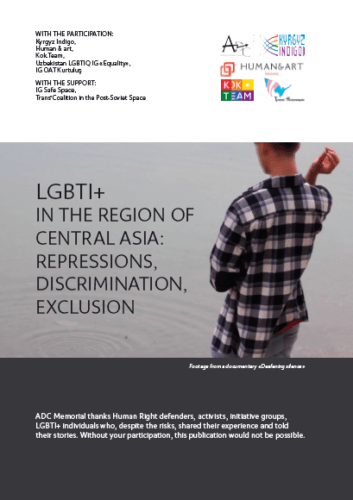
ADC Memorial has worked with the Russian LGBT Network to submit joint reports to international bodies
In 2019 and 2020, ADC Memorial published reports and materials about the situation of LGBTI+ people in Central Asian countries:
While preparing this publication, ADC Memorial developed cooperation and networks with local LGBTI+ organizations and activists and helped to enhance their potential for international advocacy.

Protections of the rights of indigenous peoples
ADC Memorial has protected the rights of the indigenous peoples of Siberia by documenting and publicizing mass violations of environmental rights and cases where the traditional places of residence and economic activity of the Shors, Teleuts, and Khakas peoples have been destroyed. In 2020 it published the report ’I Won’t Have Any Life Without This Land’: Violations of the Rights of Indigenous Peoples Resulting from Coal Mining in Southern Siberia”, and it has also repeatedly submitted information to the UN Committee on the Elimination of All Forms of Racial Discrimination and the UN Committee on Economic, Cultural, and Social Rights
- The list of issues and problems regarding the rights of indigenous peoples in Russia
- Report regarding the situation with Shor people and other indigenous peoples of Russia (CERD)
ADC Memorial supports legal work to protect the land rights of indigenous peoples and to protect local environmental activists from prosecution.

Protecting the rights of ethnic minorities
Protecting the rights of the Roma minority
ADC Memorial is a recognized expert in the area of protecting the rights of Roma and has spent years documenting the structural discrimination of Roma in the region; it has also defended Roma rights in courts and by means of international advocacy.
It has paid particular attention to protecting Roma settlements from demolition and resisting the eviction of residents (for example, the razing of the Roma settlement in Plekhanovo, Tula Oblast, Russia, 2016) and defending the rights of Roma children to education and fighting segregation in schools (for example, the case of the mass expulsion of Roma children from school, Samara, 2020)
In recent years ADC Memorial has responded to pogroms (in Ust-Akaban, Khakassia, Russia, 2018; in Chemodanovka, Penza Oblast, Russia, 2019; in Loshchynivka, Odessa Oblast, Ukraine, 2018) and arbitrary mass arrests of Roma (Mogilev and other regions of Belarus, 2019).
ADC Memorial has publicized the problems of Roma who are victims of the military conflict between Russia and Ukraine (see the reports “Roma and War in Eastern Ukraine – refugees, displaced persons, victims of violence,” 2015; “’For today, they don’t seem to be shooting…’ The Roma of Donbass – an unquiet postwar peace,” 2016 ).
These and other human rights reports on the situation of Roma people in the region were submitted to international human rights structures, including UN committees: alternative reports on the implementation of the UN Convention on the Elimination of All Forms of Racial Discrimination for Moldova (2017), Armenia (2017), and Ukraine (2016); the reports ““From Penury to Prison: The Vicious Circle of Rights Violations Against the Roma of Belarus”,” ““Racism, Discrimination and Fight Against “Extremism” in Contemporary Russia and its Controlled Territories”,” and the digest “Structural discrimination against Roma in Eastern Europe and Central Asia,” 2018.
ADC Memorial has raised the problem of discrimination against the Mugat group in Central Asian countries at the international level and described the situation of this minority in a number of human rights reports
- Tajikistan: Violation of the Rights of the Children of Tajik Migrants Abroad; Children from Migrating Groups (Mugat); and Children Affected by Migration
- On the Kyrgyz Republic’s Compliance with the International Convention on the Elimination of All Forms of Racial Discrimination
- Nationless Ethnic Groups of Tajikistan (Pamiri, Jughi, Yaghnobi): From Non-Recognition to Discrimination
ADC Memorial issues educational materials, in particular in Romanes. During the COVID19 pandemic, ADC Memorial has informed Roma communities about safety measures in their native language.
Fighting discrimination against Crimean Tatars
ADC Memorial and its partners provided the first in-depth analysis of ethnic discrimination against Crimean Tatars and Ukrainians in Crimea after 2014 and brought this issue to the attention of international human rights experts in a series of reports:
- Racism, Discrimination and Fight Against “Extremism” in Contemporary Russia and its Controlled Territories
- ADC “Memorial” submitted information regarding the situation in Crimea to Committee on Elimination of Racial Discrimination
Protecting the rights of ethnic minorities in Central Asia
In 2020 ADC Memorial was the only human rights organization to collect field materials about the anti-Dungan pogrom in Kazakhstan directly following the tragic events and drew the international community’s attention to the problem of discrimination against the Dungan . This meant that the issue of ethnic relations in Kazakhstan was added to the international agenda of talks between UN structures and Kazakhstan and was also criticized by the European Union.
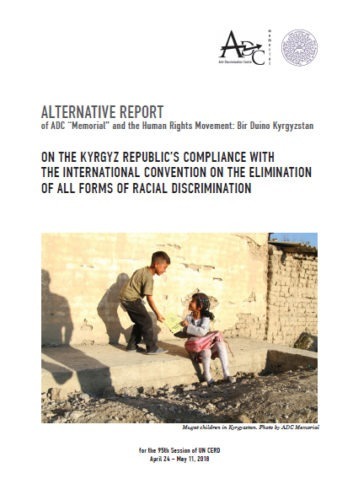
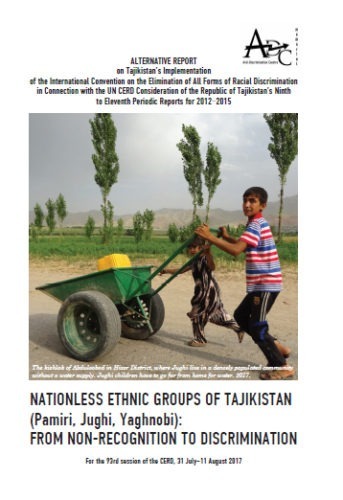
ADC Memorial studies the problems of ethnic minorities in Central Asian countries to push for recommendations from international bodies and assist in their implementation. One result of consideration of an alternative report published by ADC Memorial and Bir Duino Kyrgyzstan was that UN CERD issued important recommendations, in response to which the Kyrgyz government adopted an Interagency Action Plan that included the adoption of a comprehensive antidiscrimination law and an improvement in the situation of ethnic minorities, including the Mugat.

Since 2013 ADC Memorial has represented the interests of group two visually impaired person Andrey Sosnov, who was illegally rejected for an internship by the St. Petersburg Bekhterev Psychoneurological Research Institute. Even though decisions of the Nevsky District Court of Saint Petersburg and the Saint Petersburg City Court were adopted in 2014 and 2015, the Institute only implemented these decision in 2016, when it compensated the claimant for emotional damages. The court decision is Sosnov’s case is an important step in the fight against discrimination in education: Academic institutions must create conditions so that people can receive an education without discrimination instead of preventing disabled people from exercising their rights.
ADC Memorial submitted an alternative report devoted to violations of Article 24 (“Education”) of the Convention of the Rights of Persons with Disabilities for the 19th session of the UN Committee on the Rights of Persons with Disabilities (2018). This report noted the systemic nature of problems persons with disabilities have accessing education in Russia
In 2017 ADC Memorial was able to attain an RF Supreme Court judgment finding a clause of the Federal Aviation Rules, approved by an order of the Russian Ministry of Transport in 2002, unconditionally banning HIV-positive people from working as flight attendants. The court found this provision of the rules invalid and not subject to application. It noted that HIV-positive people may only be found unsuitable for work as flight attendants on the basis of a medical opinion if their health prevents them from doing this job. The court rejected the Ministry of Transport’s arguments that HIV-positive flight attendants may pose a danger to plane passengers. The claimant, who was represented by Dmitry Bartenov, with support from ADC Memorial, and Maksim Olenichev, worked successfully as a flight attendant for 10 years, but he was found unsuitable for work in 2016 after his HIV-positive status was discovered. The decision on unsuitability was adopted on the basis of a Ministry of Transport order establishing that HIV infection is in all cases a barrier for work in aviation.

Fighting discrimination against HIV-positive migrants
From 2015 to 2020, ADC Memorial, in cooperation with attorneys and other human rights organizations, diligently pushed for legal recognition of the rights of HIV-positive foreign nationals to be legally located within Russia: Discrimination of HIV-positive people violates national law, and banning a foreign national from living with their Russian family violates the principle of family unity.
A number of cases in Russian courts have been successful when expulsion orders were rescinded and permission was granted to issue an HIV-positive foreign national a Russian residence permit.
On March 12, 2015, the RF Constitutional Court adopted a very important decision permitting HIV-positive foreign nationals to enter and stay in Russia without obstruction.
In 2016 the European Court of Human Rights (ECtHR) issued a judgment in the case of “Norvuk et al. v. Russia,” in which one of the five applicants was represented by Dmitry Bartenev in cooperation with ADC Memorial. The European Court found that the government had discriminated against the applicants, who were HIV-positive foreign nationals with families in Russia. After this judgment, in 2017 the Basmanny District Court of Moscow also found that ADC Memorial’s client had been discriminated against.

Protecting the Rights of Migrant Children: the #CrossBorderChildhood campaign
In a number of former Soviet countries, the repatriation of migrant children is still handled by Ministry of Internal Affairs bodies through special reception centers for children. This system has been reformed in some countries in recent decades, but overall the treatment of migrant children in the region does not meet modern human rights standards. The practice of separating children from their parents, depriving children of their liberty, and placing them in special closed institutions lacking conditions for study and development is widely applied. Countries in the region continue to be guided by the Chisinau Agreement on the Repatriation of Children (2002), which enshrines the system of depriving migrant children of liberty. All these systemic problems are reflected in ADC Memorial’s report “Migrant Children in CIS Countries: Lack of Adequate Legal Norms Regulating Cooperation Between Involved Countries”.
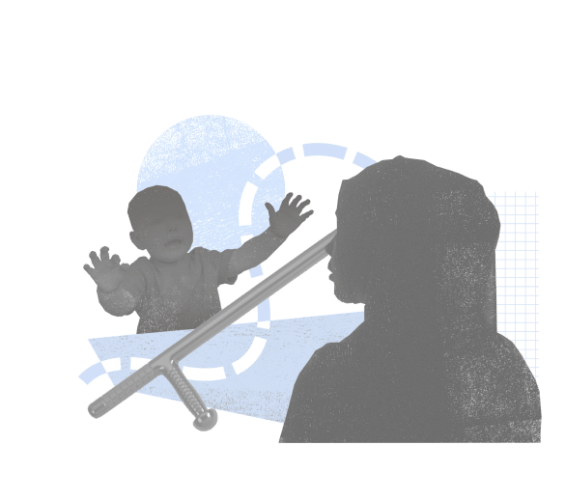
In 2015 five-month-old Umarali Nazarov died under unexplained circumstances; he had been separated from his mother, a Tajik citizen found to have broken migration rules, during a migration raid. Umarali’s mother, Zarina Yunusova, was later expelled to Tajikistan, while the police officers who tore the infant from his mother and wrote up a report on finding “an abandoned child” were not prosecuted. ADC Memorial represented Zarina in Russian courts and later filed an application with the ECtHR. The arbitrary separation of migrant children from their parents is a widespread practice in Russia.
ADC Memorial launched the regional campaign #CrossBorderChildhood in 2019 to humanize the repatriation of migrant children. It prepared a series of educational materials, raised the issue within the framework of EU human rights dialogues, and described the problem in alternative reports for the UN Committee on the Rights of the Child in relation to Belarus, Ukraine, Russia, Tajikistan, and Moldova, whose governments received important recommendations from the Committee, including recommendations to close police-run children’s reception centers, transfer migrant children to social services, and stop being guided by the outdated Chisinau Agreement.
ADC Memorial held a number of discussions on amending outdated norms and entering into new international treaties to replace the Chisinau Agreement: in Ukraine, in Moldova, in Kazakhstan, and within the framework of the OSCE Human Dimension Meeting.
In 2020 ADC Memorial prepared a model treaty on the repatriation of children; international organizations, member of the UN Committee on the Rights of the Child Mikiko Ōtani, and European Parliament member Petras Austrevicius came out in support of the campaign and called on governments to change their policies. In December 2020 ADC Memorial and the OSCE Office for Democratic Institutions and Human Rights held an online conference on the problems of migrant children with the governments of Eastern European and Central Asian countries. Professor Manfred Nowak, an independent expert for the United Nations Global Study on Children Deprived of Liberty, and Committee on the Rights of the Child experts Renate Winter and Mikiko Ōtani participated in the conference.
A number of countries in the region have already taken important steps to enter into new child repatriation treaties based on modern child rights standards.

Protecting the rights of migrants
Eastern European and Central Asian countries are ensnarled in mass labor migration, but migrant workers have limited access to exercising their human rights. ADC Memorial defends the rights of migrant workers in courts, prepares reports for international bodies, and analyzes how individual countries implement their recommendations.
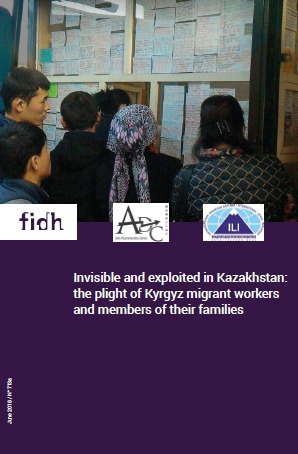
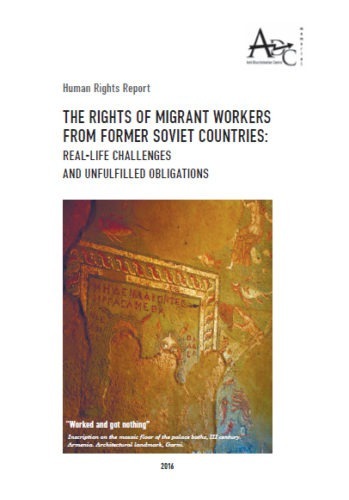
Migrants have been particularly vulnerable during the coronavirus pandemic: They have not been able to return home because of closed borders and have faced barriers accessing social protection and medical care. ADC Memorial and its partners have demanded that governments release immigration detainees during the pandemic and have publicized the situation of migrants.

Fighting the indefinite detention of stateless people
ADC Memorial has fought many years for the rights of stateless people, especially those who face the problem of indefinite deprivation of liberty. Stateless people (generally citizens of the former Soviet Union or their descendants) who have lived for years in Russia without being able to obtain valid documents are deemed “violators of migration rules”) and placed in custody pending expulsion. Since there are not any countries that will accept them, there is no point or prospect to their indefinite detention in difficult conditions.
Back in 2014 the ECtHR issued a strategic decision in the case of Kim v. Russia; this was the result of joint work by the Migration and Law network of attorneys and ADC Memorial. Roman Kim (a stateless person) spent two years in a Foreign National Detention Center (FNDC), where he was deprived of the ability to appeal his detention for the entire time. The Court found a violation of Article 3 of the European Convention on Human Rights and deemed the detention conditions in the FNDC inhuman and degrading (overcrowding, unsanitary conditions, lack of regular walks). It also found a violation of Article 5 in connection with the fact that, as a stateless person, the applicant could not be expelled to any country, meaning that there were no rational reasons for his extended confinement in prison. The ECtHR also called for the Russian authorities to take general measures to prevent similar violations in the future.
Russia has not implemented the ECtHR judgment in Kim’s case. In 2017 a strategic decision relating to the complaint of Noé Mskhiladze was attained from Russia’s Constitutional Court. The Constitutional Court found unconstitutional norms of laws on administrative violations that did not allow stateless people to appeal the grounds for their detention in special institutions for the purpose of administrative expulsion under any circumstances. In 2018 the ECtHR found violations of Article 5, paragraph 1 (right to liberty and security of person) and paragraph 4 (speedy proceedings to determine lawfulness of detention) of the European Convention.
In subsequent years the ECtHR issued many judgments in similar cases, including Application no. 11556/17 Mainov v. Russia, where the Court again found the unlawful extended deprivation of liberty of stateless people illegal given the absence of a realistic chance of their expulsion; Application no. 23019/15 Alimuradov v. Russia, where the Court found violations of Article 3 (prohibition of torture and inhuman and degrading treatment) and Article 5, paragraph 1 (right to liberty and security of person) and paragraph 5 (speedy proceedings to determine lawfulness of detention); and in Application no. 8279/16 Mardonshoyev v. Russia, where the Court found a violation of Article 5, paragraph 1 of the Convention.
Guided by the abovementioned practices, courts often release stateless people from detention centers. However, Russia has not made amendments to laws regarding the systemic problem of the indefinite imprisonment of migrants and stateless people, even though bills have been prepared and even undergone several stages of review.

Protecting the rights of human rights defenders and activists
ADC Memorial makes statements and takes other action in solidarity with human rights defenders and civil activists in the region by defending freedom of assembly, association, and expression.
Through networking, joint missions and appearances, and support for the work of attorneys, ADC Memorial helps enhance the capacity of its partners to conduct field research, strategic litigation, and local and international advocacy.

Cooperation with UN bodies
Over the past five years, ADC Memorial has kept international bodies updated about the human rights situation in countries in the region:
- UN Committee on the Elimination of All Forms of Racial Discrimination: Russia, Tajikistan, Armenia, Moldova, Belarus, Kyrgyzstan, Ukraine
- UN Committee on the Elimination of Discrimination Against Women: Ukraine, Armenia, Russia (2015, 2020), Belarus, Tajikistan, Kazakhstan
- UN Committee on the Rights of the Child: Tajikistan, Moldova, Russia, Ukraine, Belarus
- UN Committee on Economic, Social, and Cultural Rights: Russia, Kazakhstan
- UN Committee Against Torture: Russia
- UN Human Rights Council: Russia (2015, 2020)
- Committee on the Protection of the Rights of All Migrant Workers and Members of their Families: Azerbaijan, Tajikistan, Kyrgyzstan
- UN Committee on the Rights of Persons with Disabilities: Russia
- Universal Periodic Review: Russia, Belarus, Kyrgyzstan
- Participation in the development of the Global Compact for Migration and the joint General comments of CRC and CMW on children migrants









 Feedback
Feedback 
